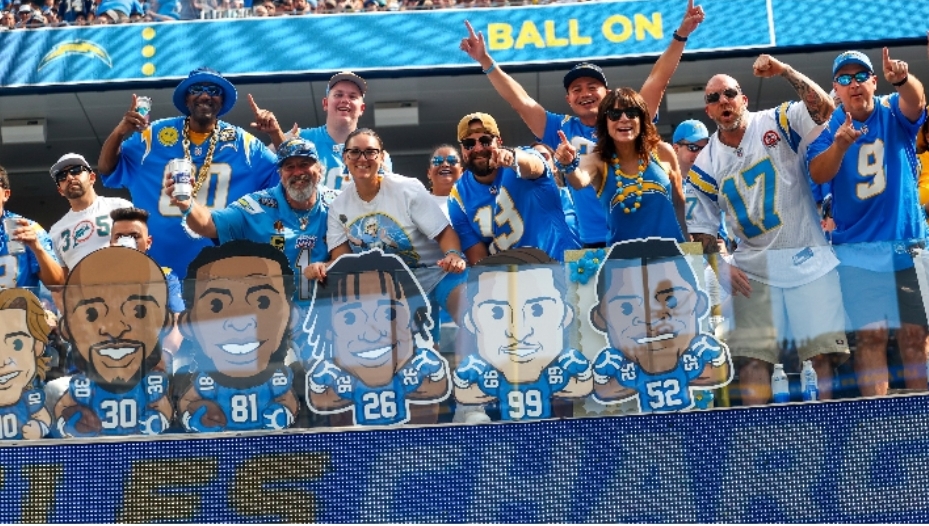American football, particularly the National Football League (NFL), is not just a sport but a cultural phenomenon that has shaped and been shaped by its vast array of fans. The NFL’s influence extends beyond the field into the lives and social fabric of its audience, making it more than a mere pastime. This article explores the various aspects of NFL fan culture in America, focusing on the psychological and social implications of being an ardent follower of this beloved sport.
The Psychological Connection
At the heart of NFL fan culture lies a deep psychological connection between fans and their favorite teams. This connection is akin to the bonds people share with their nationality, ethnicity, or even gender. Daniel Wann, a professor of psychology at Murray State University, emphasizes that team identification is a significant part of a fan’s self-identity. This intense identification with a team leads fans to experience the highs of victories and the lows of defeats very personally. Such experiences can significantly impact fans’ self-esteem and emotional well-being.
Intriguingly, this connection taps into the ancient human need for belonging to a group, a tribe. Modern NFL fans, in this context, view their teams as warriors representing them, evoking feelings of pride and belonging. This phenomenon is not without its risks, as research has shown that significant losses, like those in the Super Bowl, can lead to increased cardiac events in fans due to emotional distress.
There is a broad spectrum on the level of fandom, from someone who may simply put a Dallas Cowboys sticker on their waterbottle, and watch on Sundays, to more die hard fans who live and breath their team’s success throughout the season. However, despite the risks, being an NFL fan is actually associated with better psychological health, offering a sense of community, shared goodwill, and hope.
Social Benefits of Being an NFL Fan
The social benefits of being an NFL fan are manifold. Firstly, it provides a sense of community, which is crucial for mental health. This community feeling results in higher social self-esteem and lower levels of loneliness and alienation. When a team wins, fans experience vicarious achievement, leading to hormonal surges and physiological changes akin to the athletes on the field. This shared identity among fans facilitates communication and reinforces shared values.
Moreover, being an NFL fan often means being part of a larger narrative that includes learning about different cultures and traditions, given the diversity within teams. The emotional journey of following a team through wins and losses also mirrors life’s challenges, teaching fans valuable lessons in coping with success and failure.
Economic and Cultural Impacts
The NFL’s influence on the economy and culture of the United States is profound. It’s one of the most profitable sports leagues globally, generating billions of dollars annually and providing employment to thousands. The presence of an NFL team in a city can stimulate local economies through tourism, increase tax revenues, and even inspire infrastructural developments.
Culturally, the NFL has left an indelible mark on American society. From fashion trends inspired by team apparel to NFL-themed menus in restaurants, the league’s impact is pervasive. It also plays a role in social change, encouraging players and fans alike to advocate for justice and equality.
Nostalgia and Emotional Connection
For many fans, the NFL is a nostalgic and emotional experience. Early socialization to sports often leads to lifelong attachments, with fans recalling childhood memories of attending games or celebrating team victories. This nostalgia is a powerful driver of fan loyalty and engagement.
Challenges and Darker Aspects
While there are numerous positive aspects to being an NFL fan, there are also challenges and darker aspects. Fans may experience intense negative emotions following a team loss, including anger, humiliation, and resentment.
This emotional investment can sometimes lead to dysfunctional behavior, with a small number of fans engaging in aggressive or abusive actions. These reactions often stem from individual personality traits rather than the intensity of fandom alone.
Final Thoughts
The NFL and its fan culture in America is a complex tapestry woven with psychological, social, economic, and cultural threads. It is a phenomenon that offers a sense of belonging, community, and identity to its followers, while also presenting challenges and responsibilities.
The NFL’s influence extends far beyond the field, deeply embedding itself into the American psyche and daily life. As the league continues to grow and evolve, so too will its impact on the fans who make it more than just a game, but a way of life.
